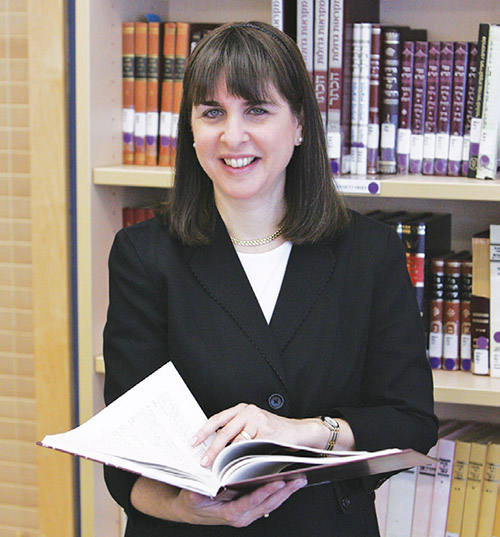
Eight years ago I was blessed with the opportunity to start Lamdeinu—the center for adult learning in Teaneck. With the support of friends, family, fellow learners and communal leaders, my dream of creating a community of learning came to be. Around the Shabbat table, my family considered what to name our new learning community. We came up with Lamdeinu because this moniker reflects the vitality of engaging in joint and interactive Torah study.
Over the years, I have been asked many times what is special about Lamdeinu. I have given many answers, and they are all true. This Simchat Torah, as I was saying Hallel, yet another beautiful aspect of learning be-chevruta at Lamdeinu occurred to me. I was reciting the poetic psalm of Be-tzeit Yisrael—Tehillim 114—which describes the extraordinary experience of the exodus from Egypt. When Israel came out of Egypt, the psalm begins, nature itself rejoiced as God intervened to rescue the powerless slaves from their oppressors. The psalm then continues in striking verse:
The sea saw and fled; the Jordan river turned back.
The mountains skipped like rams, the hills like lambs.
But the psalm does not end with this brilliant flourish. It continues with a rhetorical question.
Why was it, oh sea, that you fled?
Why was it Jordan river, that you turned back?
Why mountains, did you skip like rams
And you, hills, like lambs?
Only then does the psalm conclude with its climactic message. The bodies of water and mountains stood back in awe and reverence because they beheld the presence of God the Creator of the earth who miraculously “turns rock into water and flint into a flowing spring” to redeem and protect His beloved nation of Israel.
I often wondered at the repetitiveness of this psalm. Why not just state: “When Israel left Egypt, the sea and Jordan river stood back because of the awesome power of God?” Why so many statements followed by questions about retreating seas and rivers, before the psalm makes its simple and compelling point that God is in control of the universe and humanity?
The answer, of course, is that Be-tzeit Yisrael is written to engage human beings, and people are not collections of facts and ideas. Each of us is made of thoughts and feelings. Stating in scientific fashion that God used nature to save the Jewish slaves is nowhere as emotionally compelling as conveying that idea through poetry and rhetorical questions. The psalm of Be-Tzeit Yisrael that we recite in the Hallel is a poetic journey that heightens our appreciation of God’s sovereignty over the world and His providence over the Jewish nation. To learn deeply and effectively, human beings must engage with text—not just recite it. They must ask the questions, consider and discuss the answers and then, finally, arrive at a satisfying conclusion.
Which brings me to the Lamdeinu learning experience. The trademark of Lamdeinu is the bonding and connection that grows between human beings when they join together in the study of Torah. Whether it be Chumash, Tanach, Gemara or halacha, the Lamdeinu experience is about the asking of questions of the text and the engaging and interacting with each other that must precede the arrival at answers and conclusions. This is the essence of the tradition of Torah learning that has enriched Judaism for thousands of years—and this is what we do every morning at Lamdeinu!
Join us at Lamdeinu for the experience of Torah study! Lamdeinu’s new semester begins Thursday, October 20 and continues through December. Every class and shiur is self-contained—you may join at any time.
And remember, the most important part of learning Torah is asking questions! If you have any questions about Lamdeinu, please contact me at deanlamdeinu1@gmail.com or program director Debbie Negari at lamdeinu613@gmail.com. We look forward to learning torah with you and to answering your questions!
Dean Rachel Friedman is a noted teacher, author and lecturer in the areas of Bible and Jewish liturgy. Friedman is the founder of Lamdeinu, the center for Jewish learning in Teaneck. She served for many years as associate dean and chair of Tanakh Studies at Drisha Institute for Jewish Education in New York City. She has been a scholar-in-residence at synagogues and educational institutions throughout the United States and abroad. She has a master’s in Bible from the Bernard Revel Graduate School at Yeshiva University and a JD from Columbia University School of Law.









